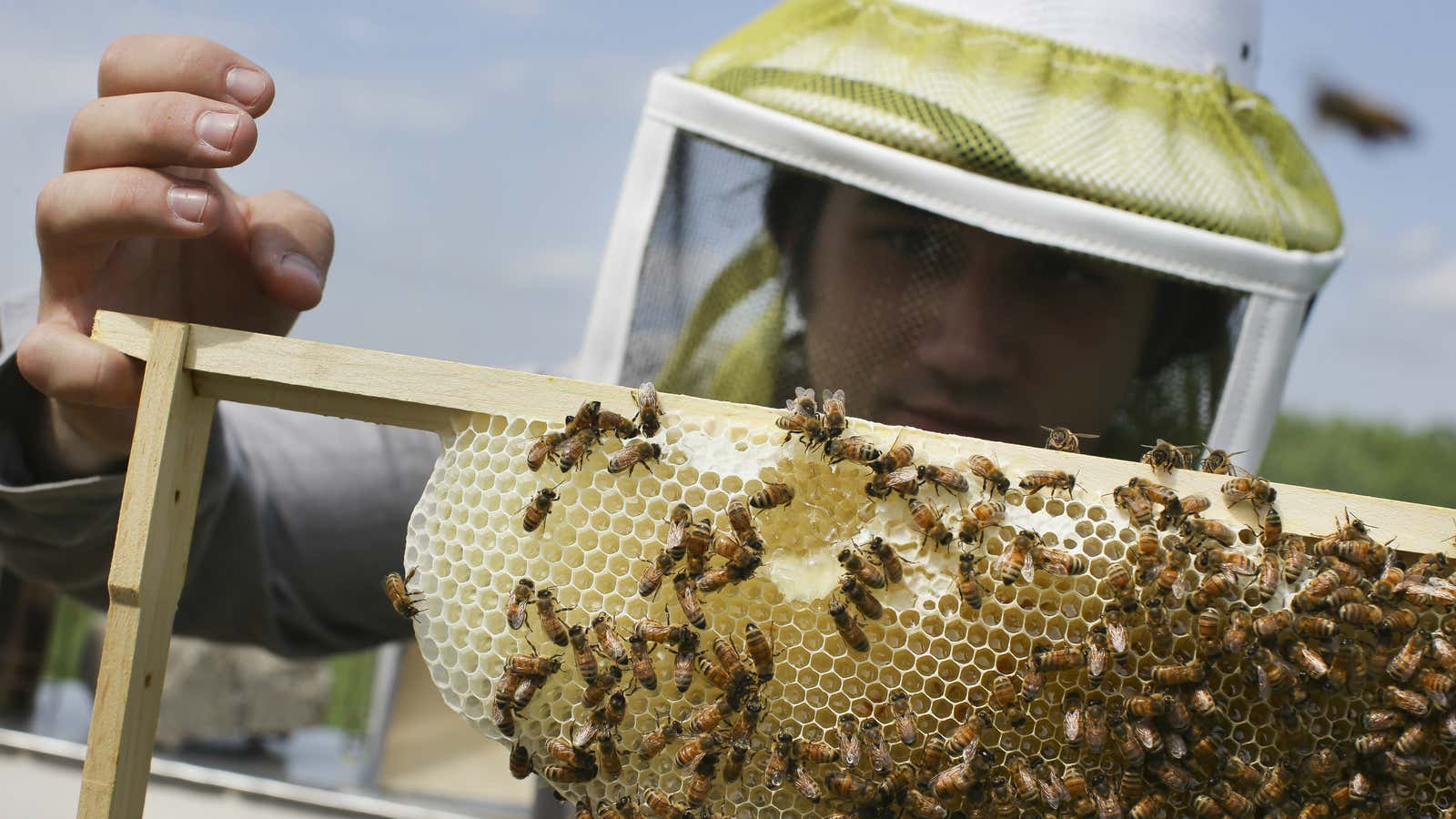A recent sampling of honey from around the world honey has given scientists fresh evidence for why so many bees are dying off.
A study published Oct. 6 in the journal Science found that a significant amount of the world’s honey contains traces of neonicotinoids, a class of commonly used pesticides, at levels strong enough to cause brain damage in bees. The chemicals are meant to attack the nervous systems of pests and keep them from eating crops, but it appears they may also hurt bees, which have been dying off in huge numbers in recent years, much to the befuddlement of researchers around the globe.
The amount of neonicotinoids sampled from honey around the globe does not rise to the level that would be dangerous for humans, the research says. Still, it bolsters the suspicion by many scientists that pesticides containing neonicotinoids play a significant role in the declining bee populations.
For the study, researchers analyzed 198 honey samples from around the world, testing them for five common neonicotinoids: acetamiprid, clothianidin, imidacloprid, thiacloprid, and thiamethoxam. They discovered that at least one of those was present in 75% of the samples. And 34% of the samples contained a concentration of the compounds known to be lethal to bees.
“The contamination confirms the inundation of bees and their environments with these pesticides, despite some recent efforts to decrease their use,” the study authors write. The European Union in 2013 placed a partial ban on pesticides with neonicotinoids.
Scientists for years have been trying to figure out exactly what’s causing the global crash in bee populations. They’ve considered car exhaust, pesticides, malnutrition, even stress, among many other causes. In the US, it is estimated that pollinators such as bees are the backbone of $15 billion in crops annually—a number that generated several policy conversations about how to best curb more bees from dying during the Obama administration.
Environmentalists have expressed concern, though, since president Donald Trump assumed office and appointed Scott Pruitt to head the US Environmental Protection Agency. Pruitt has been described by some as being especially friendly with the pesticide industry.
